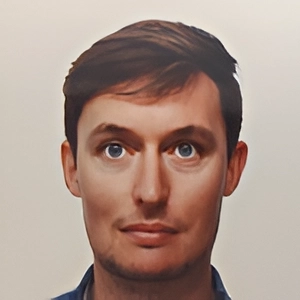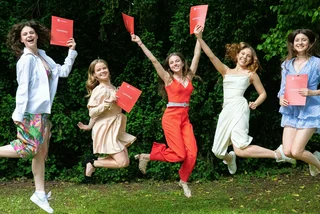As the rise of “fake news,” troll farms, and data harvesting throw election results into question and further fuel polarization, political scientists find themselves navigating a new, more complicated frontier – one that is vastly different from 20 years ago.
In the Czech Republic alone, prime minister Andrej Babiš stands accused of fraud, a senate committee has declared that controversial president Miloš Zeman is no longer fit for office, and the resignation of a fourth health minister in less than a year has created a politically charged 2021.
Amid this roiling political environment, Anglo-American University has unveiled a new Bachelor’s Program in Political Science. Launching in Fall 2021, the program will be offered by AAU’s School of International Relations and Diplomacy (IRD). This decision is supported by a historic increase in the number of international students who have enrolled at the university, with the School of IRD garnering a huge portion of that interest – and the largest number of newly admitted students.
“I’m really excited to be able to help launch the careers of not only future diplomats but also people who are going to create domestic policy, run campaigns and advise on things that are actually happening within the government,” says Assistant Dean of the School of IRD, Zuzana Veselá.
Veselá explains the difference between International Relations and Political Science: “International Relations tends to focus on foreign policy and how governments interact with each other, while Political Science is focused more on what happens inside a government, for example, how a domestic policy is formed.”
Interest in political science is currently running high in the Central and Eastern European region, as recent democratic backsliding has seen increased authoritarian regimes developing in neighboring Hungary and Poland.
Not without its own scandals and intrigues, the Czech Republic provides a good vantage point for those with an interest in political science. “I always say that it’s a terrible time to be a citizen, but a great time to be a political scientist, as we are not going to run out of topics to talk about” says Pelin Ayan Musil, a senior lecturer on the program.
The curriculum will offer a balanced mix of courses including political and international relations theory, as well as philosophy, history and economics. Students will learn about both US and European political institutions, as well as political economy and conflict resolution. This is supported by skills-focused classes in writing and research methods and language classes to increase proficiency in foreign languages.
Students will undertake 30 courses over six semesters, including a number of specializations, and students are encouraged to pick specializations in areas that specifically interest them.
“If you’re interested in issues with democratic backsliding, populism and the rise of authoritarian regimes, then you should choose a concentration such as Conflict and Democracy studies,'' says Veselá. “There you’ll study things such as radicalisation trends, political violence, party politics and the survival of autocrats – things that are very topical today.”
Veselá adds that students who are naturally interested and enthusiastic in the subject will thrive at AAU.
“If you’re really passionate about something, you’re going to understand it a bit more and make the effort to listen to a podcast, read an extra article, or watch a video. It will encourage you to become better and better informed and just soak up knowledge.” She advises students to make the most of the elective modules and take subjects that they are interested in. “It won’t feel like work. It will be interesting and fun.”
“We want to make sure you’re studying something you’re passionate about. We want to be sure that you become a little bit of an expert in the area that you’re particularly interested in.”
This passion frequently spills over outside the classroom, and can often be observed in the monthly “professors in the pub” sessions, where students are encouraged to engage with staff in a casual setting, discussing themes such as “changes in the relationship between the US and EU” over a glass of wine or a beer.
In addition to well-regarded academic staff, students can also benefit from the knowledge of staff with professional experience, including former diplomats and lawyers who are happy to share their unique perspectives with students.
Notable faculty members involved in the New Political Science program include Dean of the School of IRD, Dr. Alexei Anisin, who specializes in politial violence and mass murder and who has written on the subject of mass shootings and civilian armament; lawyer and law lecturer Zuzana Fellegi, who has previously held the post of Director General for Human Rights and Minorities in the Slovak Government, and retired US diplomat Steve Kashnett, whose 35-year career included assignments to embassies in Europe, Latin America and the Middle East, where he participated in negotiations in the Isreali-Palistinian conflict, the peace agreement in Northern Ireland, and an end to military rule in Haiti.
One of the advantages of studying AAU is that students are given lots of opportunities to choose elective classes, effectively allowing them to form their own program of studies. Also, class sizes are very small, with a maximum of 25 students, and smaller numbers in subject concentration classes. “In concentration classes, there are 10 or 15 people who are really passionate about the same thing that you are. I think that gives the best education possible” concludes Veselá.
This article was written in association with Anglo-American University. To read more about our partner content policies see here.












 Reading time: 4 minutes
Reading time: 4 minutes 






















